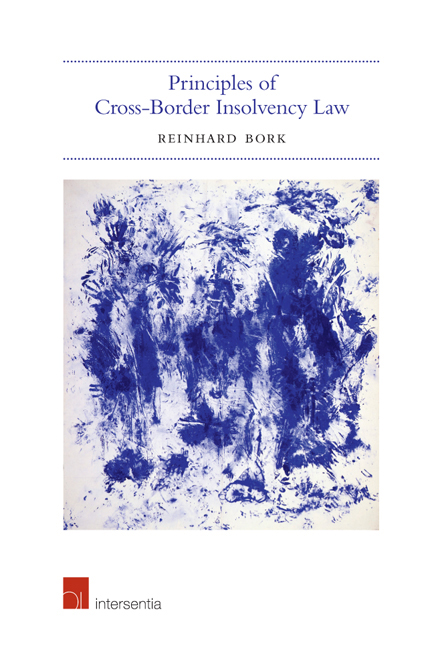Book contents
- Frontmatter
- Dedication
- Foreword
- Preface
- Contents
- Table of Abbreviations
- Table of Cases
- Chapter 1 Setting the Scene
- Chapter 2 Jurisdictional Principles
- Chapter 3 Procedural Principles
- Chapter 4 Substantive Principles
- Chapter 5 Interim Results
- Chapter 6 Conflict of Principles
- Chapter 7 Principles and Harmonisation
- Chapter 8 Concluding Remarks
- Literature
- Index
- About the Author
Chapter 4 - Substantive Principles
Published online by Cambridge University Press: 22 September 2018
- Frontmatter
- Dedication
- Foreword
- Preface
- Contents
- Table of Abbreviations
- Table of Cases
- Chapter 1 Setting the Scene
- Chapter 2 Jurisdictional Principles
- Chapter 3 Procedural Principles
- Chapter 4 Substantive Principles
- Chapter 5 Interim Results
- Chapter 6 Conflict of Principles
- Chapter 7 Principles and Harmonisation
- Chapter 8 Concluding Remarks
- Literature
- Index
- About the Author
Summary
The next bundle of principles to be inspected more closely are substantive principles. They reflect the impact of insolvency proceedings on substantive legal positions and come into play concerning protection of the substantive interests of persons involved in, or affected by, (cross-border) insolvency proceedings.
GENERAL
The groups of principles we have dealt with so far – jurisdictional principles and procedural principles – pursue basic standards but have a mostly (albeit not exclusively) systemising influence. They are mostly structural principles, as defined at the beginning of this book. This is evident, for example, regarding the principle of priority, which turned out to be ancillary to unity and universalism and which amounts to nothing more than completing the (albeit important) task of organising proceedings. Admittedly, there are also procedural principles – especially the principle of procedural justice, including most notably the right to be heard – which seek to protect the legal interests of the parties involved. These interests, however, are still purely procedural interests and not substantive rights. Hence, it follows that the actual substantive principles as defined above should (and will) be identified in this chapter of the book.
It has been suggested above that such substantive principles can be found in national insolvency laws as well as in international insolvency laws. However, the relationship between substantive principles and cross-border insolvency law is far from clear. One might think that the latter contains formal conflict of laws rules only, and one might assess the field of conflict of laws as being neutral and anaemic, merely demarcating and impartially allocating national laws to the cross-border issues in question without taking into account the interests of the parties involved or at least pursuing basic standards. However, it was explained by Konrad Zweigert and Paul Neuhaus decades ago that the rules governing conflict of laws can be based on substantive principles (e.g. protection of trust/ legitimate expectations), and the same holds true for cross-border insolvency law.
- Type
- Chapter
- Information
- Principles of Cross-Border Insolvency Law , pp. 113 - 158Publisher: IntersentiaPrint publication year: 2017



